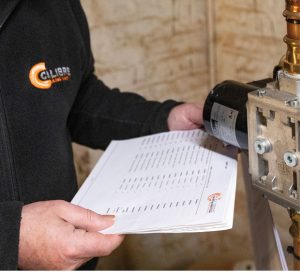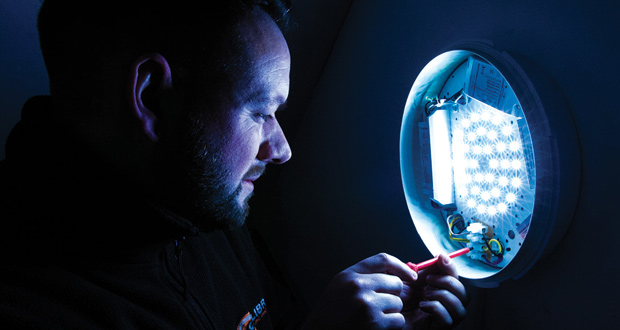CALIBRE OF STAFF
As Venton explains, the directors haven’t been afraid to reorganise the management structure along the way as the company has grown.
“The ethos had always been not to overload the management to give them time to support the engineers and support the clients. But around 18 months ago Paul found himself in a position of 21 direct reports, and suddenly trying to get time with him, trying to strategise where the business was going and which new regions to target, became difficult.
“So, what we did in essence was to promote two contract managers to general managers or business unit leaders. What is completely different to everyone else in the market is that we took them off all their existing contracts, so they don’t directly manage any business, but instead support the managers and more importantly, support the clients. This is a unique approach which brings extra overheads, but the way it’s developed the client relationships has proven successful.”
Key to the company’s delivery model is maintaining one to one communication, with clients having a single point of contact throughout the business. This means they can speak to the same administrator and contract manager and speak to one AGM (Area General Manager) and meet those people from the very beginning of the contract.
They will also meet with those of a director level – with not only the Sales Director and Operations Director but the company founders being involved in some of the tender presentations. The leadership not only meets with clients, but regularly with the in-house 176 staff as well.
Explains Soares: “This approach means there is engagement from everybody within Calibre at a very direct level. This is why I think communication is one of our unique selling points, because although I’m sure every supplier can communicate in a good manner, we’ve geared ourselves up in a way that our communication levels are extremely effective for clients and for client service delivery.”
Being a primarily self-delivering hard services provider, finding the right staff with the right skills levels is crucial, and means Calibre’s apprentice programme is key for its future. Matt Mabey, who himself progressed from Engineer to Supervisor to Contract Manager, Director and finally to Business Owner, oversees the training and development at the firm and looks after the apprenticeship programme, because, says Soares, he wants to build a legacy.
 “We don’t have a high staff turnover by any stretch of the imagination. We have also created some aspirational goals for people to be able to achieve bigger things and not just walk in as an engineer and walk out as an engineer 10 years later. We’ve created different levels, including supervisory and management levels. That applies too to our operational and office staff. For everyone within the business we’ve created sufficient ambitious goals for them to be able to stay and want to be part of the growth, and that I think, is key.”
“We don’t have a high staff turnover by any stretch of the imagination. We have also created some aspirational goals for people to be able to achieve bigger things and not just walk in as an engineer and walk out as an engineer 10 years later. We’ve created different levels, including supervisory and management levels. That applies too to our operational and office staff. For everyone within the business we’ve created sufficient ambitious goals for them to be able to stay and want to be part of the growth, and that I think, is key.”
FLEXIBLE INNOVATIONS
Working at the hard services side of the sector, Calibre is seeing an increase in demand for smart technology. Some of this suggests Venton is due to the continuing prevalence of home working which means many of the buildings they help manage are still experiencing hybrid occupancy patterns.
“Many of our clients ask us if we can offer proactive maintenance, how often should it now be serviced and how much can be saved by doing condition-based works. We need to offer data led delivery, especially when it comes to saving on energy. One Embassy Gardens is a great example of what I said earlier about people having the time to look closely at energy management to affect change.”
Thanks to the engagement of the Site Manager, the Engineer and the Contract Managers with consultants, the site has achieved energy savings of 21 per cent reduction over the last two years. Venton describes this process as being “empowered to be proactive”.
A more recent innovation is the introduction of integrated meter readings. With these, engineers can capture meter readings on the job, immediately put these into graphs which go into Calibre’s dashboards and are then uploaded straight into client systems – all from an engineer’s handheld device.
For Paul Soares arguably the most powerful tool at their disposal is the flexibility to make changes quickly and respond immediately to client’s needs. This contrasts with large organisations where every request must be run up a corporate food chain. This he believes is one of the main reasons for Calibre’s rapid growth over the past two years, and it is something he and Venton are determined to build on in the year to come.
Says Soares: “Larger companies can’t offer a service without imposing a certain culture on their clients, whether it’s in their service practices or in escalating costs. We’ve had situations where we were up against larger companies, and the client was considering going with them just because of the brand and the name. But when it came down to it, their flexibility was zero, they imposed what they wanted and where. We then won the job because we can flex.”





